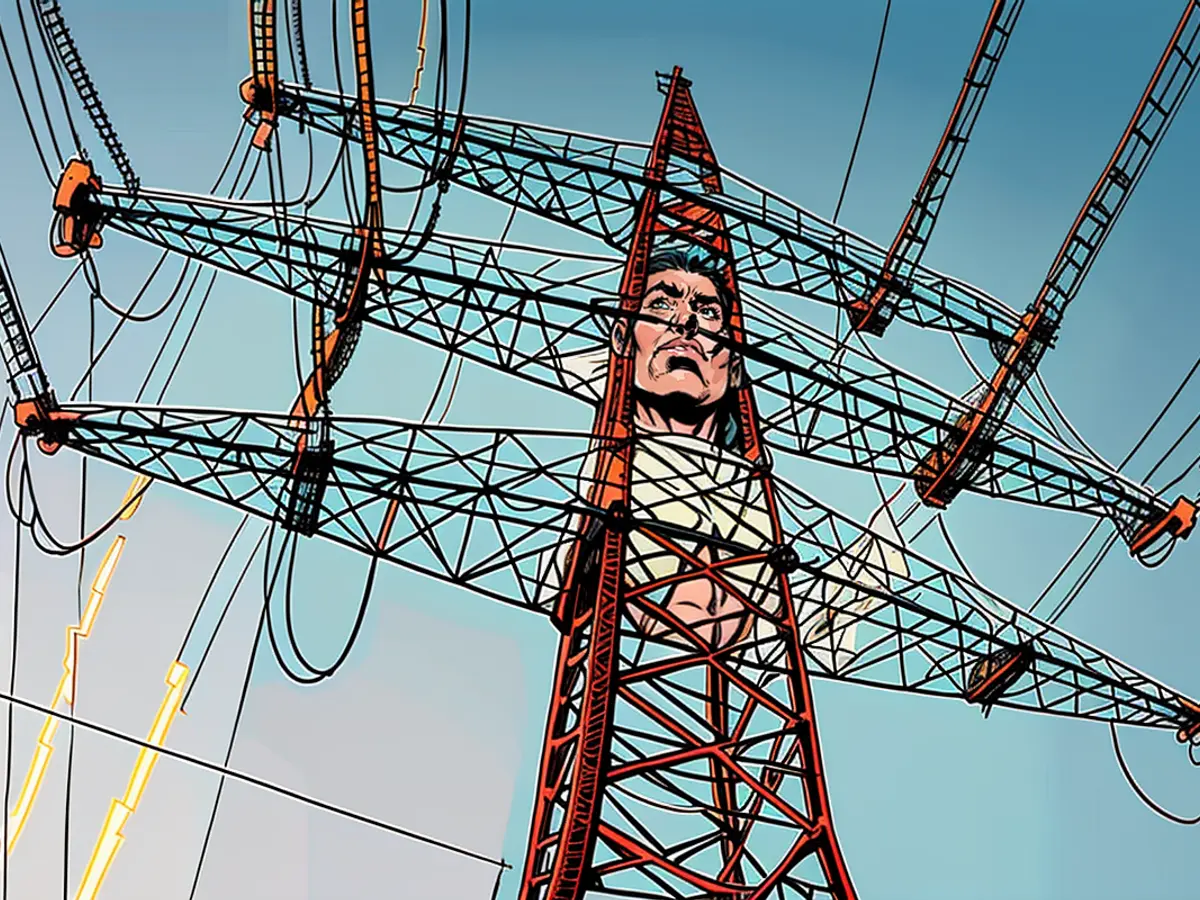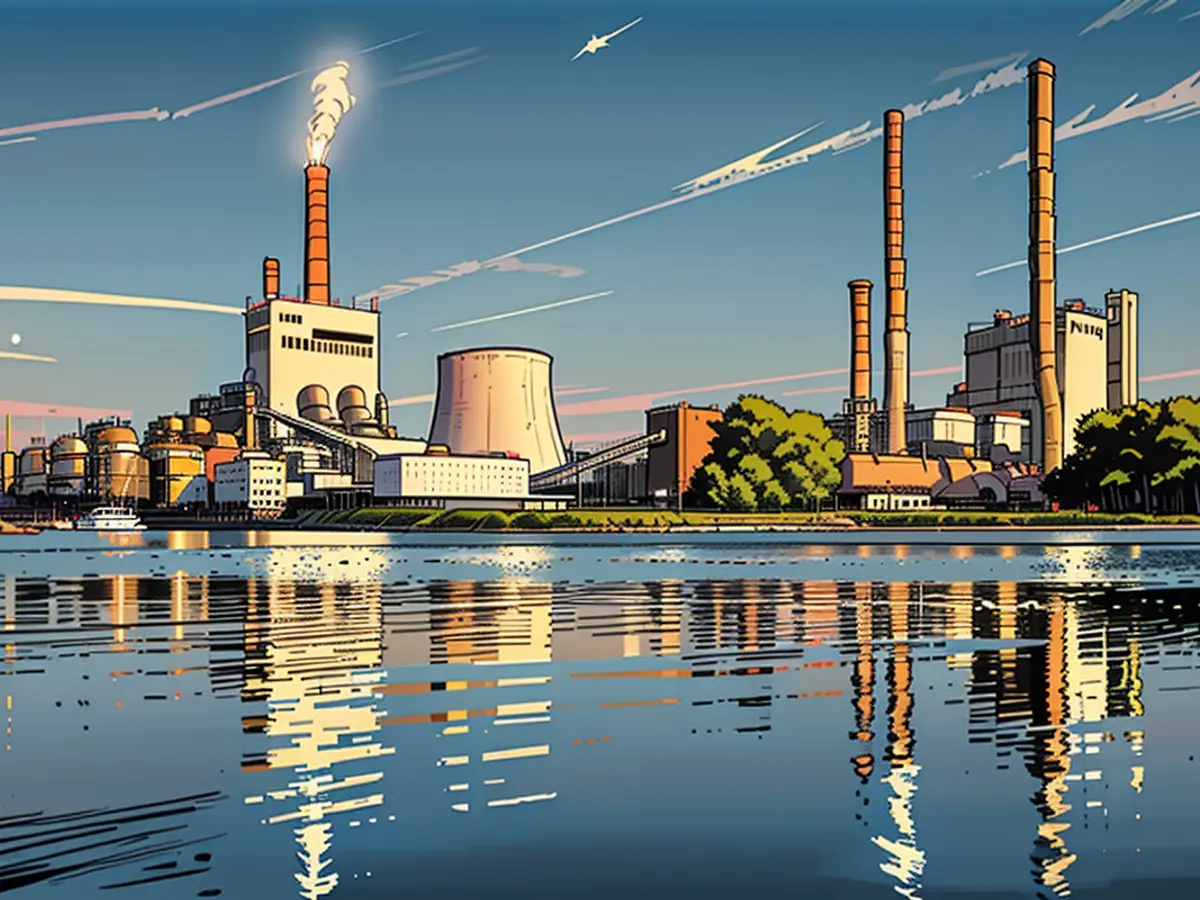"Costs could be substantially reduced"
To accelerate the energy transition, two new power lines are to be built faster. The Bundestag has given the green light for this now. The decision for underground cables is expected to ensure acceptance in the population according to environmental economist Andreas Loeschel, but it has its price.
The Bundestag has approved legislative projects aimed at accelerating the expansion of renewable energies. Through a change in the Federal Requirements Planning Act, wind energy from the sea is to be better distributed throughout the country via the grid. Concretely, two new power lines are to be built faster.
"The faster inclusion of high-voltage power lines in the Federal Requirements Plan is very welcome," says environmental economist Andreas Loeschel in response to an inquiry from ntv.de. "There is still an urgent need for action when it comes to the construction and expansion of networks for electricity and hydrogen." Finally, the expansion of networks is one of the central prerequisites for the successful expansion of renewable energies and for the achievement of climate protection targets.
The NordOstLink is to transport electricity from Schleswig-Holstein to Mecklenburg-Vorpommern in the future. With the Rhein-Main-Link, electricity is to be better transported from Lower Saxony to South Germany. The exact start of construction depends on the plans of the Federal Network Agency and the transmission network operators. With the decision of the Bundestag, the expansion can begin as soon as possible.
The expansion of the lines is expected to cost around 47 billion Euros according to the draft law. In connection with the investment, electricity costs for consumers could increase. According to the draft, network charges, which are passed on to all electricity customers, are to increase by approximately 80 Euros net per year due to the project.
Loeschel notes that in the future, more consideration will have to be given to costs when expanding the networks. The now approved power lines are planned as underground cables. "The costs of network expansion could be significantly reduced if, in the implementation of direct current projects, transmission lines were considered in the future," Loeschel demands. "This effect, however, is hardly noticeable."
In the run-up, TransnetBW, Tennet, and 50Hertz, three of the four major transmission network operators, had already suggested in a report in the "Sueddeutsche Zeitung" that the obligation to cable underground be reconsidered. EnBW from Karlsruhe also supports the switch from underground cabling to overhead lines in the new projects "Ostwestlink", "Nordwestlink", and "Suedwestlink". "This could halve the costs," said Financial Director Thomas Kusterer recently to ntv.de. "Overhead lines are also simpler and faster to build. We simply cannot afford to miss out on efficiencies. After all, we can only spend each Euro once."
To achieve the climate goals in Germany, one must continue to invest massively in the restructuring of the energy system. "The required capital for mobilizing funds for the energy transition and enabling investments is possibly the greatest challenge of the coming years," so Kusterer. "The acceptance of the energy transition could suffer significantly if network expansion costs unnecessarily increase."
The German Bundestag has supported legislative initiatives to boost the pace of renewable energy expansion, including the faster construction of two power lines. This decision is crucial for the ambitious plan to distribute wind energy from the sea more evenly across the country.
The approval of these projects also means a potential increase in electricity costs for consumers, as network charges may rise due to the estimated 47 billion Euros expense for the expansion.








